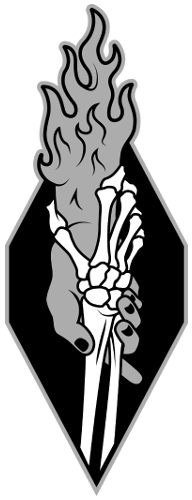The Greek philosopher Heraclitus, known as “the Dark”, “the Obscure”, or “the Weeping”, had a significant documented influence on other philosophers of his era (around 500 BCE), but most of his own writings did not survive to the present day. Only a few fragments remain, for us to unravel, including the line “ethos anthropos daimon”. This usually gets translated as “the character of a man is his fate”. Ethos means character, and anthropos means man or person, but what about daimon?
Academics have largely decided that in this case it refers to a spirit that controls your destiny, and therefore to destiny or fate itself. But this has some problems. First, if a spirit or a dispassionate fate controls your destiny, then what does character have to do with it? No matter how you change your character, either your fate stays the same regardless, or the idea of fate gets reduced to the obviously false “good things happen to good people”.
Secondly daimon had a variety of other meanings, both in the immediate context of Heraclitus, and later as the idea traveled and changed. It could refer to an inner voice that advises you, or the spirit inhabiting a place, or the supernatural source of unfamiliar thoughts or events. With those interpretations “the character of a person” would come from whatever guides or inspires them outside their usual habitual thoughts. And of course daimon gives us Demon, so then a person’s character would come from their Demonic nature.
Heidegger (a despicable person, but deeply studied on this subject) translated ethos anthropos as the familiar places or ways of humankind, and daimon as god or “the unfamiliar”. In this framing, the accustomed or ordinary situations in which we live are also openings for the entry of the divine or the extraordinary.
Heraclitus got the nickname “the Obscure” because he did not explain his meaning clearly. So it falls to modern readers to make their own interpretations; and from our perspective, the translation of daimon as “fate” falls rather short. It implies a fear of acknowledging the more spiritual possibilities of the word, in favor of a toothless and inoffensive aphorism about getting what you deserve.
Demonkind broadly uses daimon/Demon to indicate the part of ourselves that has awoken to the ancient spirit shared among us. The seed sprouts, and we become able -even eager- to change and grow, and our inner senses open to the extraordinary spark of spirit where before we only saw the grind of material life. We feel the sun warming our upper reaches, and we feel nutriment flowing from below, from the dead that preceded us.
The word eudaimonia usually gets translated as “happiness” or “well being”, and centuries of philosophers have debated how to achieve this state, establishing whole schools of thought about it. Etymologically eudaimon reads as “good demon”, meaning either a literal spirit creature of goodness, or an inspiration toward goodness. Eudaimonia therefore is a condition where the spirit of well-being has affected you in some way.
We propose the word daimonia to represent the state of heightened awareness of the Demon inspiring us, in their swirling blend of “good”, “evil”, and indefinable. We call upon you to recognize this daimon, to embrace and honor it, in yourself and in everyone you meet. This becomes your ethos, your character; and every moment of every day reveals a new opening for the unexpected, the divine, the Demon to appear, and transform you from within.
